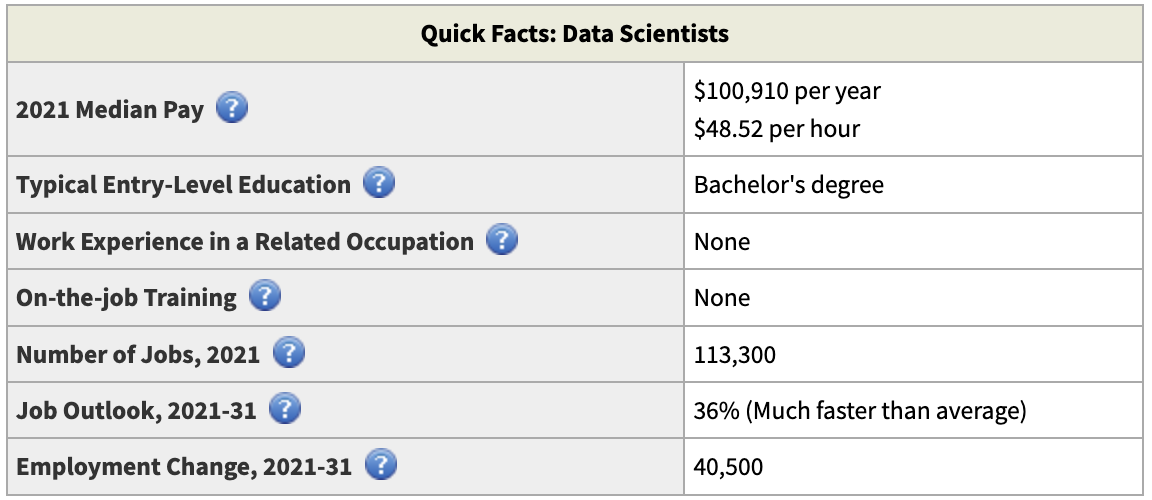track
The Top Data Science Jobs of the Future
This article will help you understand the evolving landscape of data science so you can embrace continuous learning and position yourself for success in this dynamic and in-demand field.
Jul 2023 · 10 min read
Learn Topics Mentioned in this Article!
90hrs hours
course
Introduction to Data Ethics
1 hour
4.3K
track
Data Scientist
26hrs hours
See More
RelatedSee MoreSee More
blog
7 Top Data Science Careers and How to Pursue Them
Examining the incredibly popular field that is data science
DataCamp Team
13 min
blog
Data Science Salary Expectations in 2023
Find out how much you can earn and how to boost your existing salary in data science, one of the most exciting and in-demand fields in the job market.
Javier Canales Luna
14 min
blog
The Top 10 Data Analytics Careers: Skills, Salaries & Career Prospects
Explore the top jobs in data analysis with these ten careers. Discover the skills you’ll need to get started, plus the salaries and career prospects for these analytics careers.
Matt Crabtree
13 min
blog
The Best SQL Jobs in 2024: Career Paths and Opportunities
Discover the top jobs that use SQL in 2024. Learn why SQL is essential, how to get started, and explore high-demand career paths with SQL skills.
Sejal Jaiswal
16 min
blog
The Top 15 Data Scientist Skills For 2024
A list of the must-have skills every data scientist should have in their toolbox, including resources to develop your skills.
Javier Canales Luna
8 min
blog
The Top Machine Learning Jobs in 2022 and How to Get Them
Discover the top machine learning jobs for 2022. example job listings, as well as the skills you'll need to get them. Plus, learn the essential machine learning skills today.
Natassha Selvaraj
19 min

